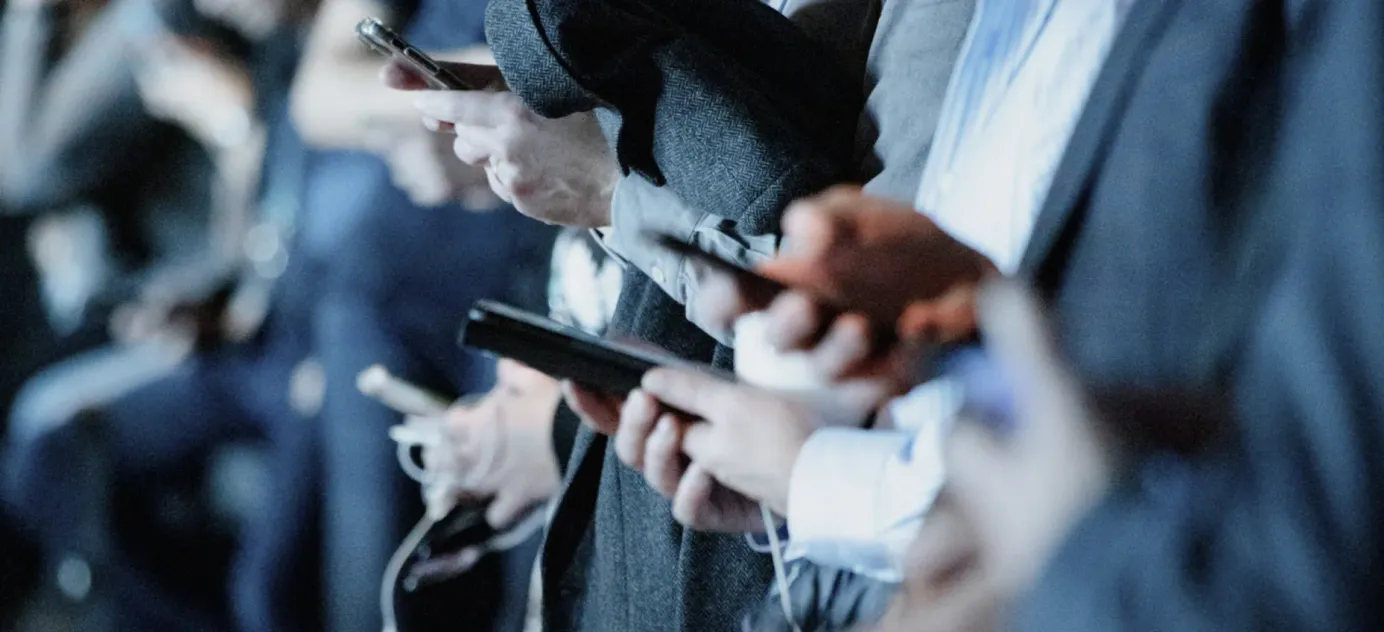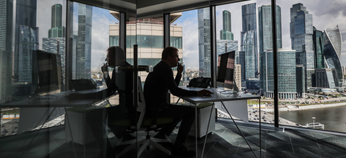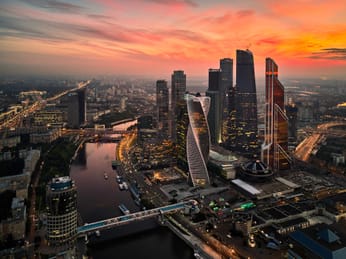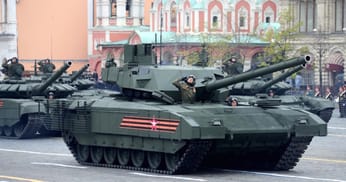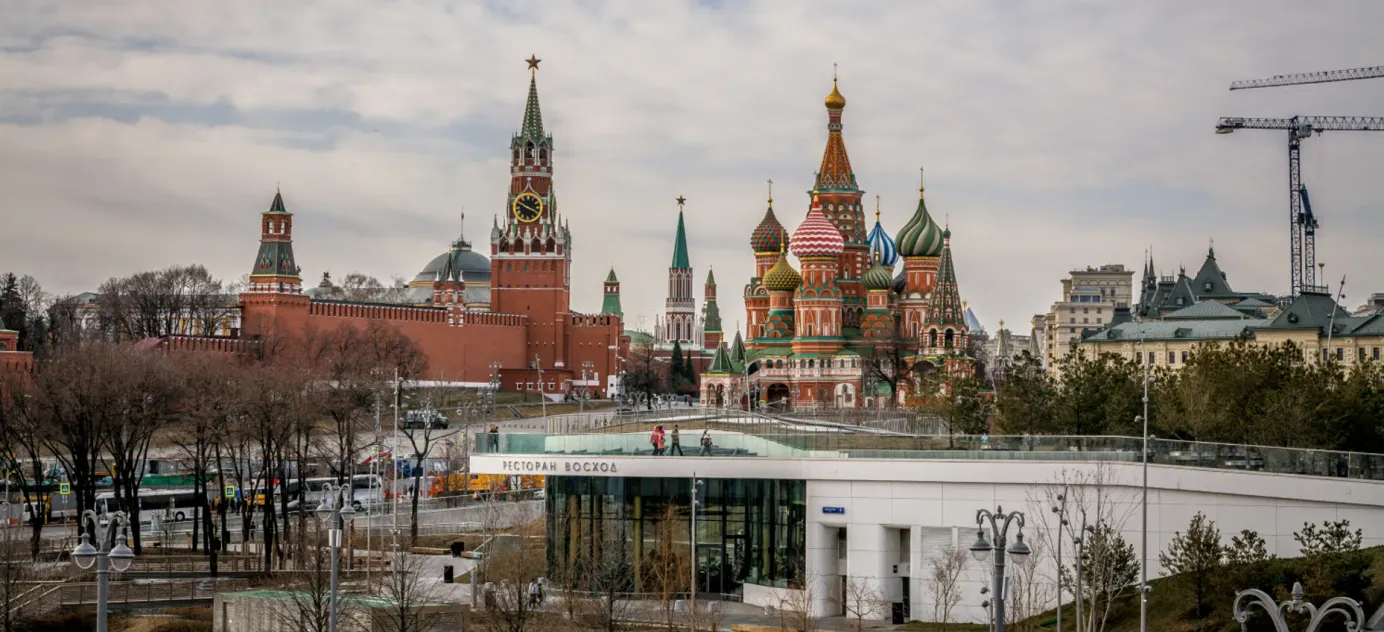
THE BELL WEEKLY: Don’t call it a tax rise
Hello! This week we cover the biggest tax hikes in Russia for two decades, and why the state is trying to call them something else. We also look at the fledgling “pirate” car industry of Western-branded vehicles being assembled in Russia, and cover how troll farms are using Western AI to generate and spread disinformation.
When is a tax rise not a tax rise? When Russian propaganda talks about it
Russia’s finance ministry last week officially put forward its proposals to “reform” the country’s tax system. The key change is the introduction of new progressive income tax bands, which will significantly raise taxes on the salaries of the country’s top earners. Businesses, too, will face a greater tax burden. The plans could generate the equivalent of tens of billions of dollars in extra revenue for the government, yet the authorities are refusing to call it a tax rise, as is clear from a cache of government documents seen by The Bell. It appears state media outlets have also been instructed not to call them tax hikes, with reporters instead talking about the “fairness” of the “reforms” and how the vast majority of people will see no difference in their take-home pay.
- The package of changes are the biggest to Russia’s tax system for 20 years (The Bell discussed them in detail here). In effect, the reforms mean higher taxes for businesses and for individuals with high salaries (more than $26,000 a year). But the government is demanding that the measures are called anything but a “tax rise,” favoring terminology like “tax changes,” “reforms” or measures to “build a progressive tax scale.”
- The government says the main driver behind the tax rises is to deliver on “a long-held demand for social justice.” It believes that if the extra revenue is spent on social welfare higher taxes will be accepted as fair by most Russians.
- However, in reality the structure of the progressive systems means that inequality will only increase — and the majority of the super-rich’s earnings will not be touched. That’s for at least four reasons.
- First, in most major economies that have progressive tax scales, there is a tax-free personal threshold — an amount individuals can earn without paying any income tax whatsoever. In Russia, that does not exist.
- Second, the wealthiest do not derive their main earnings from salaried work, but from dividends, interest on savings, and investment returns. None of this is affected by the new progressive tax bands and the maximum tax rate for these will remain at just 15%.
- Third, income taxes go to regional budgets. This means that higher tax rates will only increase inequality between Russia’s regions, which is already dangerously high, since high earners are concentrated in Moscow, Saint Petersburg and a few other regions (such as some oil-producing or resource-rich areas).
- Fourth, higher taxes will not be levied on soldiers fighting in the war in Ukraine. They already receive significant salaries — on average, a participant in the so-called “Special Military Operation” earns 200,000 rubles a month ($2,211), Vladimir Putin said earlier this year. The finance ministry justified the exclusion of servicemen from the higher tax bands by saying they carried a “greater risk to life” and were serving “in defense of ... the country.”
- None of that makes it into the government’s talking points, of course. In addition to ideas of social justice and fairness, the government and state media are justifying the tax “reforms” through the idea that only a small group of people will be affected — just 3% of the country’s workforce. This is reminiscent of the way pro-Kremlin bloggers sought to reassure Russians during the 2022 mobilization drive, when they repeatedly posted that only 1% of the male population would be sent to the front.
- The authorities are also emphasizing that the Russian tax code will still be competitive compared with other jurisdictions. The highest tax rate on individual incomes in Russia under the new system will be 22% (up from 15% now), well below the top rates of tax in China (45%), Britain (45%), Germany (47.5%) and France (55.4%).
- The government has a separate playbook for how to talk about the higher corporate taxes it has proposed. The plan to raise taxes on company revenues comes at a time of high profitability for businesses, which not only recovered their losses from a “difficult” 2022 but has seen bumper financial results over the last year. Higher tax payments pave the way for the removal of export duties imposed in 2023, which are tied to the ruble exchange rate, government documents suggest.
- In news broadcasts, Russian propaganda toes the party line. On screen, there is not a word about “increased” taxes. News reports instead tell Russians that an “improved” tax system will make it possible to solve “the most important” social issues and support families with children (the authorities are offering annual tax reductions for low-income families with two or more children from 2026).
- State news agency RIA Novosti went even further. It published a column which not only parroted the government’s slogans but also said that anyone paying higher taxes was “not only a man with solid income, but a patriot of his country, proud to contribute to its development.”
Pourquoi le monde devrait s'en préoccuper :
The Russian authorities are framing their tax increases as “social justice” even though the two have nothing in common. The increased tax burden is necessary to pay for Putin’s war machine and create a new rainy day reserve fund in otherwise turbulent conditions.
‘Pirate’ Western cars go on sale
Almost all international car brands have left Russia since the start of the war, and it has become impossible to continue making authentic and licensed foreign vehicles from Russian factories. However, a loophole has emerged that enables Russian companies to manufacture so-called “pirate” cars, branded as Western models without the consent of the company they are claiming to be.
- Russian dealers have recently started offering a “pirate” version of the Citroёn С5 Aircross — at twice its pre-war price. Citroёn cars were previously made in the auto manufacturing hub of Kaluga, 160 kilometers from Moscow. The controlling stake in the factory that churned them out is still held by a Dutch company, Stellantis. Last year the company said it had de facto lost all control over its Russian assets. Now the factory is once again churning out Citroёn C5 Aircrosses, assembled using Chinese kits exported to Russia by Dongfeng, a Chinese company that builds Citroens in China and has shares in Stellantis.
- A Russian-assembled pirate Citroёn С5 Aircross with a 1.6L gasoline engine, eight-speed automatic gearbox, dual-zone climate control, all-round visibility system and keyless entry sells for 4 million rubles ($48,000) at Russian dealerships. That’s almost twice the pre-war price. In early 2024, the vehicle was added to the priority list for authorized use by officials.
- The Citroёn plant in Kaluga will release another crossover based on this “local assembly” scheme by the end of the year, said Pavel Bezruchenko, head of the “Automotive Technology” company responsible for re-launching production of the French brand. Bezruchenko did not elaborate on exactly what type of vehicle they were planning to put on the market.
Pourquoi le monde doit-il s'en préoccuper ?
After Russia’s invasion of Ukraine and the exodus of international auto brands, Russia’s car industry has become hugely dependent on China. Beijing not only supplies spare parts, but also complete kits for assembling vehicles. For now, at least, the Western copyright owners can do nothing about this. It’s possible that other “pirate” versions of departed car brands will start to be produced in Russia.
Les "trolls" russes se tournent vers l'IA occidentale pour leurs campagnes de désinformation
Des trolls russes ont été surpris en train d'utiliser l'IA occidentale pour générer et diffuser de la désinformation sur l'invasion de l'Ukraine par Moscou. Les services russes alimentés par l'IA ne sont pas à la hauteur de la tâche, car ils sont codés pour refuser de répondre aux questions relatives à la guerre afin d'éviter d'enfreindre les lois strictes sur la censure militaire.
- Au cours des trois derniers mois, OpenAI - le créateur de ChatGPT - a révélé cinq campagnes d'influence secrètes, dont deux menées par des groupes basés en Russie qui avaient utilisé l'intelligence artificielle pour créer une grande quantité de contenu lié à la guerre en Ukraine. Dans l'une de ces campagnes, des trolls russes ont utilisé le modèle linguistique d'OpenAI pour rédiger des commentaires en anglais, en français, en allemand, en italien et en polonais, qui ont ensuite été publiés sur X et sur la plateforme 9GAG. Dans le cadre d'un autre projet, baptisé "Bad Grammar", les trolls ont utilisé l'OpenAI pour générer et publier de brefs commentaires politiques en anglais et en russe sur des canaux Telegram, le contenu étant destiné à des publics en Ukraine, en Moldavie, dans les pays baltes et aux États-Unis.
- Les trolls russes ont été contraints d'utiliser des services d'intelligence artificielle étrangers parce que leurs équivalents russes sont essentiellement censurés. Les chatbots développés par des entreprises informatiques russes refusent de répondre à des questions sur la guerre en Ukraine. Par exemple, les assistants vocaux refusent de dire "ce qui s'est passé" à Bucha, une ville proche de Kiev où les soldats russes ont notoirement massacré des civils.
- Alexander Krainov, un haut responsable de Yandex (le "Google russe"), a déclaré que si une question porte sur un sujet pour lequel certaines réponses ou opinions sont assorties d'une menace de poursuites pénales, le service refuse d'y répondre. Il a ajouté que c'est le mieux que son entreprise puisse faire. "Car si nous avions mal répondu, nous aurions très probablement été bannis", a déclaré M. Krainov.
Pourquoi le monde doit-il s'en préoccuper ?
Les chat-bots russes doivent fonctionner sous la censure, une approche qui efface certains sujets de leurs modèles génératifs. Cela ne signifie pas que l'internaute russe moyen ne peut pas savoir ce qui s'est passé à Bucha - la censure russe est encore loin de la Grande Muraille de Chine.





